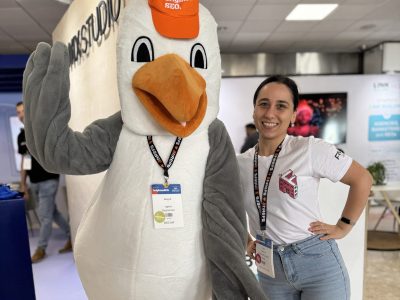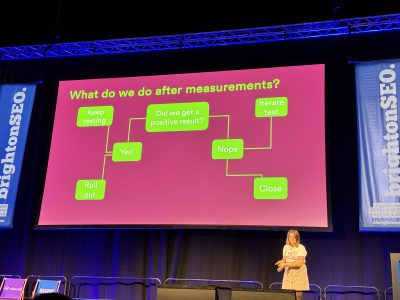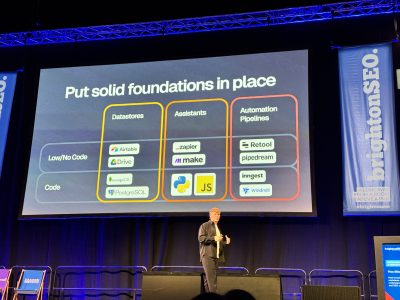November 11, 2024


The day before BrightonSEO 2024, I set off on a 5-hour train journey from Bristol to Brighton. While it was a long ride, I made the most of it by joining a team meeting from the train, catching up on a few tasks, and watching the scenery roll by.
The weather was beautiful, so I couldn’t resist a quick beach walk to clear my mind and take in the seaside air in anticipation of the much-anticipated event in the world of search engine optimisation.
The next morning, with the sun still shining and the view from The Brighton Centre nothing short of spectacular, I was ready to dive into a full day of SEO insights. I had my eye on some specific sessions and was looking forward to bringing fresh ideas back to the team.



First up was Julien Deneuville’s session on advanced log file analysis. While log file analysis isn’t new, Julien highlighted its importance for large websites and showed us how to dig deeper into Googlebot’s crawl behaviour. In true adventurous spirit, Julien chose to cycle to Brighton all the way from France, completing the trip in three days – a journey as meticulous as his approach to crawl path optimisation!
The emphasis was on identifying errors in HTTP response status codes and ensuring that Google isn’t wasting its crawl budget on less valuable pages. Julien introduced some great tools like Botify and Oncrawl for daily log audits, especially for bigger sites.
Key Takeaways:
– Fix 5XX errors immediately; too many will push Google away.
– Focus on optimising crawl paths for high-priority pages.
– Regular log audits, particularly for larger sites, are key to catching crawl inefficiencies early.

One of my favourite talks came from Elise Morel on SEO split testing, and her insights were gold. She reminded us how making small, incremental changes to meta tags, schema markup, or alt text can make a huge difference in organic rankings.
In a lighter moment, the Trainline representative jokingly described herself as “a bit basic,” sharing her love for Taylor Swift, Gilmore Girls, and pumpkin spice lattes in autumn. This candid and relatable comment brought a smile to the room and mirrored Elise’s emphasis on testing small, meaningful changes: whether in SEO or in life, it’s often the personal touches that resonate the most and yield the biggest results.
Key Takeaways:
– Run SEO tests on similar-performing pages to ensure consistent results.
– Test small elements like meta tags and schema to gauge their impact.
– Let tests run for at least two weeks to gather reliable data.

Next up, Finn Elliott took us through the power of proper AI use in SEO. Finn explained that while AI is becoming more integral to SEO workflows, it’s not a replacement for human expertise—it’s a tool to enhance efficiency.
He also introduced the concept of multi-step prompting to get more accurate AI results, and it was a practical, hands-on approach to incorporating AI into tasks like content generation or data analysis. It’s all about letting AI handle the repetitive stuff while we focus on the strategic side.
Key Takeaways:
– Use AI for repetitive tasks but keep humans in the loop for quality control.
– Multi-step prompts help guide AI to produce more relevant and accurate outputs.
– AI is a great assistant but can’t replace the strategic expertise SEO professionals bring.
After a full day of sessions, it’s clear that BrightonSEO 2024 delivered on every front—from log file analysis to AI integration and split testing. But the biggest takeaway? SEO is still about providing value to users, no matter how much AI or automation enters the mix.
As I always say, real users come first. Optimise for them, and everything else will follow.
Until next year, Brighton!